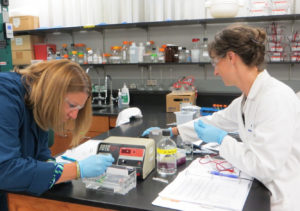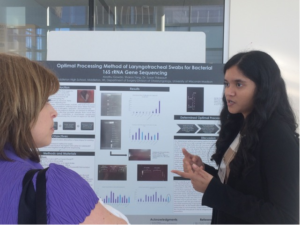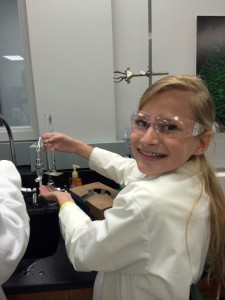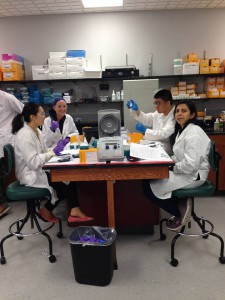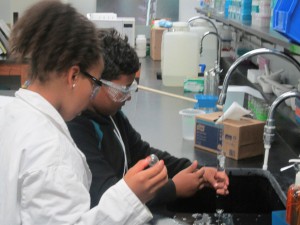Science has been an important part of my life for a long time. One of my motivations for being a scientist was helping others. As scientists, there are many ways that we make a difference. For example, doing research that reveals information about basic biological processes can provide insight into how a disease might wreak havoc, and in turn facilitate drug design and effective disease treatments. I can say from experience that it’s especially rewarding to go beyond the impact of science to assist someone in the community face to face.

Just over 5 years ago, I started volunteering at the St. Vincent de Paul Madison Food Pantry, the largest in Dane County, Wisconsin, which serves an average of about 400 families per week1. The pantry uses a customer-choice model in which clients are allotted points to shop for food, allowing them to make selections that preserve their dignity and ethnic diversity. The food pantry has a small staff, so volunteers are vital to keep things running. I serve as a “host” to clients and assist them to shop around the pantry for the items that they need. It has been such a positive experience for me. In the grand scheme of things, I’m not changing the world, but I’m helping others get essential items to make ends meet for their family. Tough times can happen to anyone, and it takes a great deal of courage to ask for help. My goal is to make the experience for clients as positive as possible by being cheerful, courteous and respectful during their time at the pantry. If helping others can make one individual forget even for a moment that they have fallen on hard times, then I call that a win!
A desire to make a difference in the community through volunteerism is one of the characteristics that I really like about working at Promega. At a recent company meeting, employees were asked to share how they serve the community. Activities ranged from assisting those with disabilities to participate in athletic activities to taking care of shelter animals to starting a non-profit for children in need. There were many more! Employees are helping others in their local communities and even those across the globe from where they live. It was so inspiring to hear about my colleagues’ experiences of serving others.
Promega has a mechanism for employees to apply for time off to volunteer through the Promega in Action program.
Continue reading “Helping Others through Science and Service”